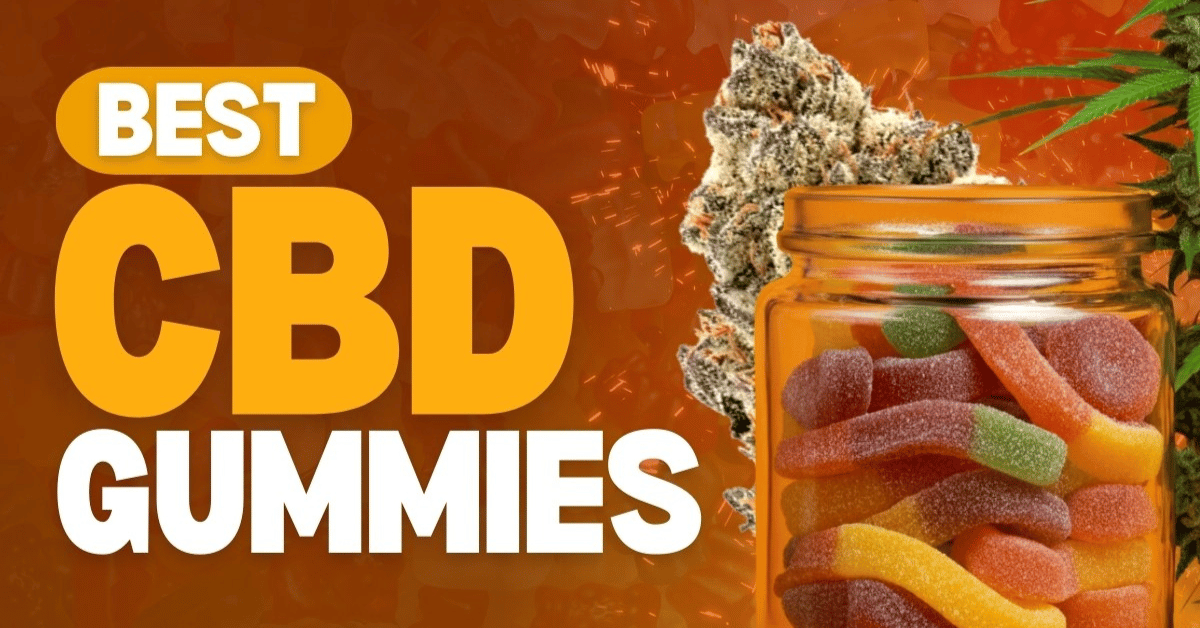How we test supplements
With so many CBD oils on the market, narrowing down the best product for your health needs, budget, and dietary preferences can be challenging. To make shopping for CBD oil easier, our team of healthcare providers and industry experts analyzed dozens of CBD oils, using criteria like type of CBD, dose, additional ingredients, quality, effectiveness, third-party testing, and price to find the best CBD oils on the market.
You can read our full supplement testing methodology here.
Here’s how we evaluated the CBD oils in this review.
Efficacy—40%
Our team analyzes each CBD oil considering the form of CBD used, the clinical evidence backing its potential health benefits, synergistic ingredients, and more. Here’s what we look at to find the most effective CBD oils:
-
CBD form
-
Clinical evidence
-
Dose efficacy
-
Synergistic effects
-
Proprietary blends
Safety and side effects—35%
We ensure that all of the dietary supplements we recommend are generally considered safe for healthy people to take and are not associated with serious adverse side effects or long-term health concerns.
To recommend the safest CBD oils on the market, we evaluate:
-
Reported side effects
-
Third-party testing
-
Manufacturer accreditation
-
Medication interactions
-
Dangerous or inappropriate label claims
-
Potentially harmful ingredients
Value—20%
Everyone’s working with a different budget, which is why we aim to include CBD oils that are both effective and affordable.
The factors we look at for this area of testing include:
Customer experience—5%
A customer’s experience with a company directly impacts satisfaction, loyalty, and the likelihood of repeat purchases. We include it in our testing process because the consumer experience guides purchasing decisions.
Our factors in this rating include:
-
Ease of purchase
-
Shipping and returns
-
Customer support
What is CBD oil?
CBD is one of more than 80 cannabinoid compounds found in the
Cannabis sativa,
or hemp plant. Unlike THC, CBD doesn’t impair your judgment or coordination because it doesn’t have psychoactive or intoxicating properties due to the way it works and is broken down in the body. (
15
,
16
)
CBD is available in many forms, including but not limited to gummies, capsules, and oils. CBD oils are made by extracting CBD from the cannabis plant and then putting it in a carrier oil like MCT oil, hemp oil, or fractionated coconut oil. (
1
)
There are three different kinds of CBD used in CBD oils: broad-spectrum, full-spectrum, and isolate. (
1
)
Full-spectrum CBD contains all extracts of the cannabis plant, including small amounts of THC. Full-spectrum CBD products must contain less than 0.3% THC by dry weight, which is the federal legal limit for CBD products. (
1
) Broad-spectrum contains all of the same components as full-spectrum CBD but contains no or only trace amounts of THC (0%). CBD isolate only contains CBD and is 100% THC-free. (
1
)
CBD is available in CBD-only products and is also commonly combined with other ingredients, such as herbs, sleep aids like melatonin, and other cannabinoids, such as THC and CBN.
CBD impacts health by interacting with the body’s endocannabinoid system or ECS, which regulates mood, sleep, and many other important processes. Though research is ongoing, some studies suggest that CBD may benefit certain health conditions, like anxiety, insomnia, and arthritis. (
1
)
How to tell if CBD oil is good quality
It can be difficult to assess CBD oil quality, but choosing CBD oil that’s been third-party tested for purity and quality can increase your chances of purchasing a high-quality and safe product.
All of the CBD oils in our roundup are third-party tested for contaminants such as heavy metals and pesticides. Third-party testing also ensures that products contain legal levels of THC. Additionally, a Certificate of Analysis (CoA) is necessary to ensure a high-quality product.
Unfortunately, many low-quality CBD products have been found to be inaccurately labeled and may contain more THC than what’s stated on the label and unsafe levels of contaminants like heavy metals. (
17
)
Many companies, including the companies listed in our roundup, post results from third-party laboratory testing on their websites. This makes it easy for customers to see exactly what their CBD supplements were tested for and that they’re safe to consume.
How to choose the right CBD oil for you
When shopping for CBD oil, there are a few factors to consider. First, it’s important to note that although CBD is generally considered safe, it’s not the right choice for everyone. For example, CBD may interact with commonly prescribed medications, such as certain pain medications and antidepressants, and can also impact certain laboratory tests, such as liver function tests. (
18
) CBD can also interact with commonly used over-the-counter and herbal remedies.
Additionally, CBD may cause side effects, such as mood changes, fatigue, appetite changes, and diarrhea. (
1
,
6
) If you’re interested in taking CBD oil, it’s best to check with a healthcare provider with a speciality in herbal medicine or cannabis medicine first to ensure it’s the best choice for your specific needs, especially if you have a health condition or are taking one or more medications.
It’s also important to consider the dose and type of CBD. Some types of CBD may be more appropriate for certain health issues. It is patient-dependent, but full-spectrum and broad-spectrum products may be a better choice than CBD isolates for people with certain health conditions, like anxiety. Plus, broad- and full-spectrum CBD products may be less likely to cause side effects than CBD isolate. (
9
)
Though dosing for CBD varies widely and depends on your health goals and medical conditions, most healthcare providers recommend starting with a low dose of CBD and increasing your dose slowly over time. For example, a commonly recommended protocol is starting with 5 mg of CBD once or twice daily, then increasing it by 10 mg every two to three days until your desired dose is achieved. This can help reduce the risk of potential side effects and help your body gradually get used to the effects of CBD. (
19
)
Since CBD oils may contain additional ingredients, like herbs and other cannabinoids, you should always read ingredient labels so you can identify potentially problematic ingredients, such as common allergens, and know exactly what you’re ingesting.
Where to buy CBD oil
You can find CBD oil both online and in specialty stores like health food shops, supplement retailers, and dispensaries. While there are plenty of high-quality options out there, it’s crucial to choose a reputable company. Look for brands that follow strict safety standards and are transparent about their sourcing and manufacturing processes, as well as their third-party testing.
FAQs
What form of CBD is most effective?
Though CBD isolates have been shown to improve certain aspects of health, some evidence suggests that full-spectrum and broad-spectrum CBD products may be more effective and may be associated with fewer side effects.
(
1
,
9
)
When is the best time to take CBD oil?
Most CBD oil can be taken at any time of day. It is important to keep in mind that products designed to promote sleep should be taken before bed, and that the recommended dosage should not be exceeded.
Is CBD oil safe?
CBD oil is generally considered safe, but it can cause side effects like fatigue and dry mouth and may interact with commonly prescribed medications over-the-counter.
(
15
,
16
)
These statements have not been evaluated by the Food and Drug Administration. These products are not intended to diagnose, treat, cure, or prevent any diseases.
Our experts
Swathi Varansi, PharmD
Dr. Swathi is a pharmacist with a passion about the intersection of personalized medicine and innovation. She received her Doctory of Pharmacy at the Medical University of South Carolina and a Bachelor of Arts at Carleton College. She also completed a postdoctoral fellowship in Medical Affairs in biotech and has training in nutrition from Cornell University.
Lauren Panoff, MPH, RD
Lauren Panoff, MPH, RD, is a plant-based registered dietitian, freelance writer, and content strategist for health and nutrition brands. She completed her nutrition education at Colorado State University, her dietetic internship through Michigan Medicine, and holds a Master of Public Health degree from Michigan State University. Lauren has been working in the wellness industry for over 15 years, including time spent in project management, public health standards, dietary supplement testing, inpatient and outpatient nutrition therapy, and child education. She has followed a plant-based lifestyle for over a decade and is passionate about helping others enjoy a healthier and more meaningful life.
Joana Neziri, M.S., NASM CPT
Joana is a writer, editor, and content strategist focusing on nutrition, fitness, and all things health. After earning a master’s degree in business from the University of North Florida, she began a career in research and digital marketing.
Lily Moe
Lily is a Brooklyn-based writer and editor with over seven years of experience in health media. As a former Fitness Coach, Lily’s editorial prowess has largely focused on fitness, nutrition, and weight management. She has also spent a fair share of time in testing labs, analyzing everything from protein powders to yoga mats. Her work has appeared in Verywell Fit, Verywell Mind, Health, and more.
Kelly Uhler
Kelly has a multifaceted background in elder care, health care, and copywriting. She has worked for organizations such as A Place For Mom and Homecare.com, which gave her the opportunity to work closely with families, providing reliable information to help them make informed decisions about their loved one’s health, safety, and quality of life.

Jillian Kubala, RD
Fortune Recommends Writer









:max_bytes(150000):strip_icc()/20-top-healthy-eating-habits-according-to-a-dietitian-2cadf252c14c410faacc0a0beea3b619.jpg)